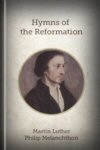Studies on the Life and Influence of Philip Melanchthon (7 vols.)
Digital Logos Edition
Overview
Close friend of Martin Luther, important co-laborer in the Reformation, and talented scholar sometimes called “the teacher of Germany,” Philip Melanchthon occupies an essential place within the history of Protestantism. Church historian Philip Schaff once noted that “without Luther the Reformation would never have taken hold of the common people; without Melanchthon it would never have succeeded among the scholars of Germany.”
Despite his crucial role, Melanchthon is far more obscure in the minds of most Christians. In this collection, scholars approach this gap, bringing his important contributions out from the shadows. Here you’ll find a gathering of works that examine Melanchthon’s life and works from a variety of perspectives, and situate him within the historical context. With this assemblage of classic biographies, you’ll gain detailed insight into the mind, experiences, and work of an indispensable figure in Lutheran history.
In the Logos edition, Studies on the Life and Influence of Philip Melanchthon is enhanced by amazing functionality. Scripture citations link directly to English translations, and important terms link to dictionaries, encyclopedias, and a wealth of other resources in your digital library. Perform powerful searches to find exactly what you’re looking for. Take the discussion with you using tablet and mobile apps. With Logos Bible Software, the most efficient and comprehensive research tools are in one place, so you get the most out of your study.
Looking for more? Check out Melanchthon’s Loci Communes 1543.
This title is included in the following collections
You can save when you purchase this product as part of a collection.
2025 Lutheran Diamond
$2,999.99$2,249.992025 Lutheran Portfolio
$4,749.99$3,562.49Classic Scholarship Collection...
$12,102.39$7,299.992025 Ultimate Library
$23,999.99$17,999.99

Key Features
- Gathers classic biographies on Philip Melanchthon
- Provides insight into the life and theology of the great German scholar and reformer
- Includes Melanchthon’s funeral address honoring Martin Luther
Product Details
- Title: Studies on the Life and Influence of Philip Melanchthon
- Volumes: 7
- Pages: 2,327
- Christian Group: Lutheran
- Resource Type: Biographies
- Topic: Lutheranism; History
Individual Titles
- Philip Melanchthon: The Protestant Preceptor of Germany, 1497–1560 by James William Richard
- The Life of Philip Melanchthon: Comprising an Account of the Most Important Transactions of the Reformation by F.A. Cox
- Life of Philip Melanchthon by Joseph Stump
- Philip Melanchthon: The Wittemberg Professor and Theologian of the Reformation by David J. Deane
- The Life of Philip Melanchthon by Charles Frederick Ledderhose
- Philip Melanchthon, 1497–1560 by George Wilson
- Hymns of the Reformation by Martin Luther and Philip Melanchthon

Gain insight into the life and theology of the “Protestant preceptor of Germany” with this study by James William Richard. Drawing from Philip Melanchthon’s own writings; biographies by Joachim Camerarius, Carl Schmidt, and Carl Matthes; and Luther’s work and correspondence, among other sources, Richard presents a portrait of the reformer that works chronologically through his life, illuminating his important place in the history of Lutheranism.
James William Richard was professor of homiletics at the Lutheran Theological Seminary in Gettysburg, Pennsylvania.

In this volume, F.A. Cox examines the life of the great scholar and reformer, Philip Melanchthon, with an object “to render Melanchthon more fully known, that his character may be more completely understood and more justly appreciated.” Working chronologically, Cox furnishes “a detailed view of his life and labors in connection with other eminent men of his remarkable age.
Francis Augustus Cox was preaching as early as his teen years, and after earning his MA from Edinburgh University, he became a Baptist minister. He founded Baptist Magazine in 1809, and was a prolific author, including multiple biographies of women in the Bible.

Noting that while “[i]n the great Reformation of the sixteenth century, [Philip Melanchthon’s] work stands second to that of Luther alone,” Joseph Stump observes that “the life of so distinguished a servant of God as Melanchthon deserves to be better known to the general reader than it actually is.” This study of Melanchthon’s life and thought was compiled to bridge that gap, offered in tribute to the four-hundredth anniversary of his birth. In this volume Stump presents “a brief but sufficiently comprehensive life of Melanchthon,” in a highly readable form that works chronologically and includes images of important people and places.
Joseph Stump was pastor of Grace Evangelical Lutheran Church in Phillipsburg, New Jersey.

David J. Deane presents a brief biography of the scholar and reformer, Philip Melanchthon, designed to be accessible to the general reader. This popular biography situates Melanchthon within his historical context and covers important points of his life and works to provide an overview that is highly readable and informative.
David J. Deane is also the author of Two Noble Lives, and Robert Moffat, the Missionary Hero of Kurman.

This volume contains Charles Frederick Ledderhose’s biography of Philip Melanchthon, here translated from the German by G.F. Krotel. Using popular language geared to a general audience, Ledderhose sets out to “present a truthful picture of the faith and life of the reformer . . . . a man who, notwithstanding all his scientific attainments . . . held fast to the fundamental principles of Christianity.” In particular, Ledderhose examines Melanchthon as “the teacher of the German people,” exerting powerful influence on the scientific and Christian culture of Germany.
G.F. Krotel was pastor of Trinity Lutheran Church in Lancaster, Pennsylvania.

In this volume, George Wilson provides a thoughtful biographical portrait of the great German scholar and reformer, Philip Melanchthon. From his memories of childhood; to his time at Heidelberg, Tübingen, and Wittenberg; to a personal look at Melanchthon at home and in his library, Wilson’s unique study is a highly readable look into this important figure’s life.
George Wilson was literary superintendent of the British and Foreign Bible Society.

This volume couples a collection of Luther’s hymns with a portrait of Luther’s life, written by his friend and fellow reformer, Philip Melanchthon. Hymns include “The Babe of Bethlehem,” “Eternity—A Fragment,” and “On the Holy Scriptures.”
About Martin Luther
Martin Luther (1483–1546), one of the most significant figures in Western history, was a key figure in the Protestant Reformation.
About Philip Melanchthon
Philip Melanchthon (1497–1560), born Philipp Schwartzerdt, was a German reformer and scholar. He was educated at Heidelberg and Tübingen, before accepting a position at the University of Wittenberg, where he became professor of Greek. A close friend of and collaborator with Martin Luther, Melanchthon was the first systematic theologian of the Protestant Reformation as well as the intellectual leader of the Lutheran Reformation. Alongside Luther, he is a primary founder of Lutheranism.
Reviews
1 rating

Rev. Robert Sundquist
9/20/2018

Andy Martinez
10/23/2016
Philip Melanchthon. He was a great philosopher. Philip Melanchthon completed his academic studies. Melanchthon such as this textbooks also published some classic a Greek grammar textbook.